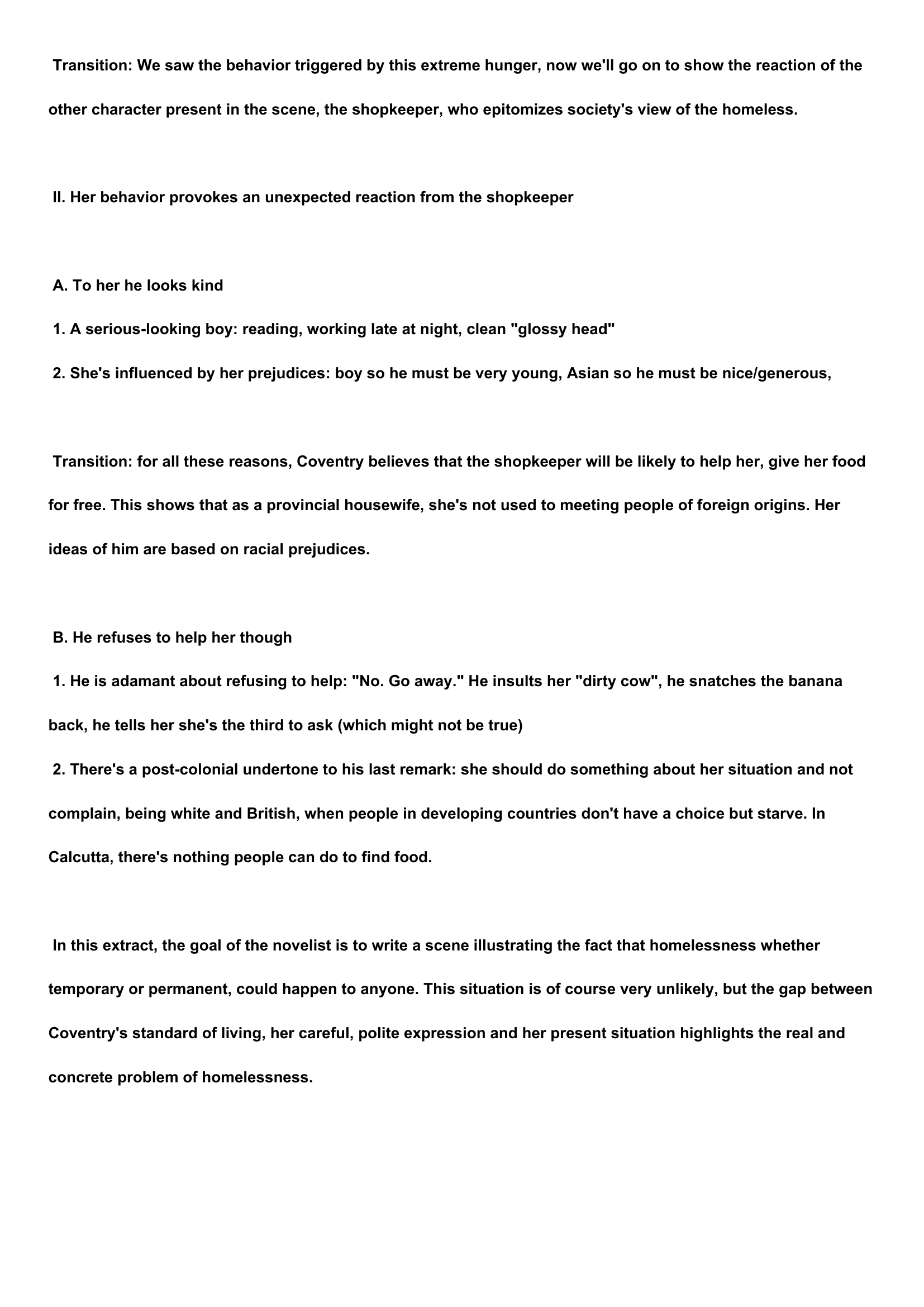Coventry
Publié le 08/11/2012

Extrait du document
«
Transition: We saw the behavior triggered by this extreme hunger, now we'll go on to show the reaction of the
other character present in the scene, the shopkeeper, who epitomizes society's view of the homeless.
II.
Her behavior provokes an unexpected reaction from the shopkeeper
A.
To her he looks kind
1.
A serious-looking boy: reading, working late at night, clean "glossy head"
2.
She's influenced by her prejudices: boy so he must be very young, Asian so he must be nice/generous,
Transition: for all these reasons, Coventry believes that the shopkeeper will be likely to help her, give her food
for free.
This shows that as a provincial housewife, she's not used to meeting people of foreign origins.
Her
ideas of him are based on racial prejudices.
B.
He refuses to help her though
1.
He is adamant about refusing to help: "No.
Go away." He insults her "dirty cow", he snatches the banana
back, he tells her she's the third to ask (which might not be true)
2.
There's a post-colonial undertone to his last remark: she should do something about her situation and not
complain, being white and British, when people in developing countries don't have a choice but starve.
In
Calcutta, there's nothing people can do to find food.
In this extract, the goal of the novelist is to write a scene illustrating the fact that homelessness whether
temporary or permanent, could happen to anyone.
This situation is of course very unlikely, but the gap between
Coventry's standard of living, her careful, polite expression and her present situation highlights the real and
concrete problem of homelessness..
»
↓↓↓ APERÇU DU DOCUMENT ↓↓↓
Liens utiles
- ÉROS INCONNU (L’ ) (résumé) Coventry Patmore
- Ellen Terry 1847-1928 Née à Coventry, elle obtient, à l'âge de neuf ans, un premier rôle dans le Conte d'Hiver, à dix ans elle est Arthur dans Le Roi Jean, joue avec sa soeur sur de petites scènes.
- Coventry.
- La destruction de Coventry (seconde guerre mondiale).
- La destruction de Coventry

































